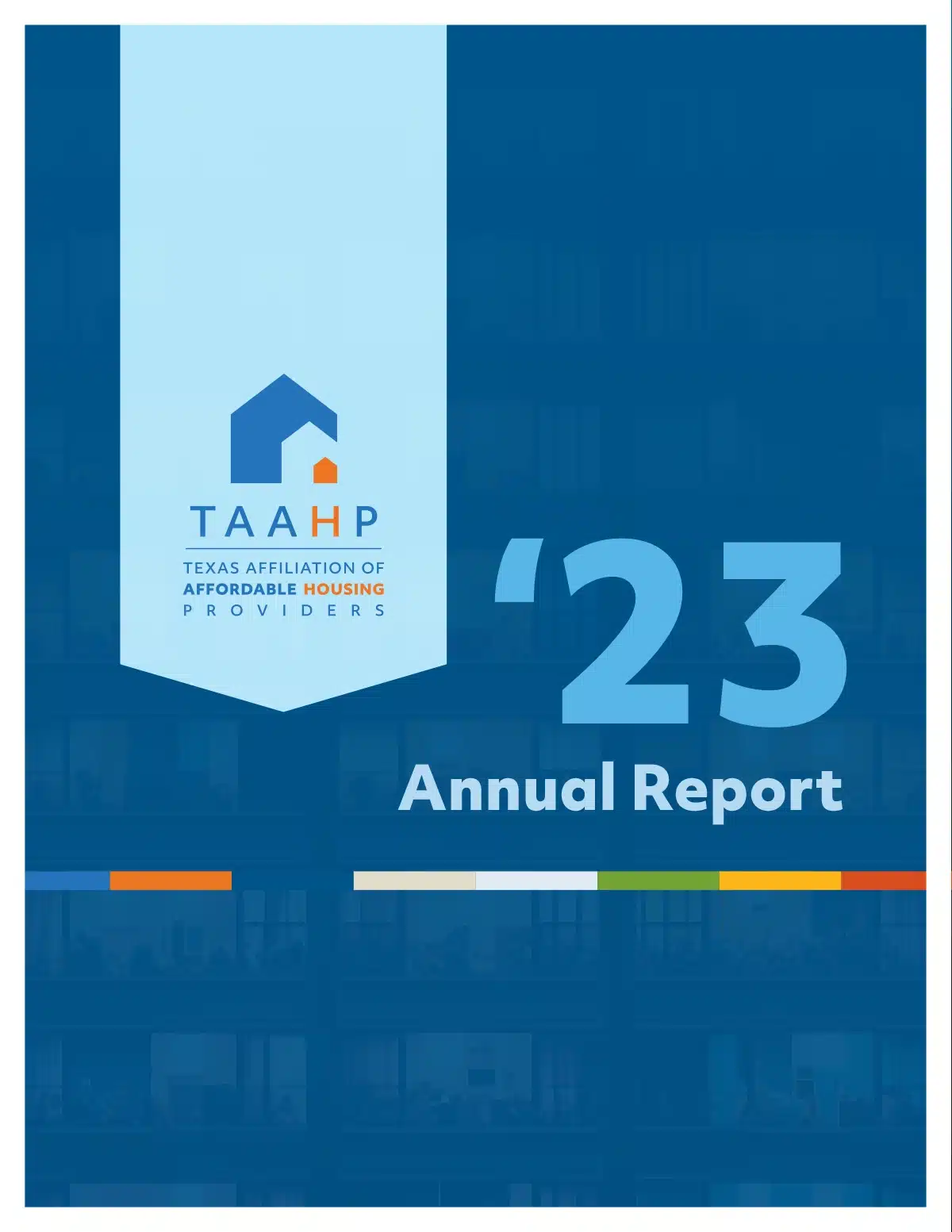On March 10, The Speaker of the House released its list of interim charges. Almost a month later, on April 4, The Texas Senate released its list for the 2022 interim legislative charges. Before the lists were released, TAAHP was asked to contribute ideas for potential interim charges focused on affordable housing. We hope that these committees consider us when discussing interim charges related to affordable housing legislation. After reviewing both lists and their corresponding committees, TAAHP has identified interim charges with affordable housing implications where proposed legislation by TAAHP could have a significant impact.
The House’s interim charges related to affordable housing are within its following committees; International Relations & Economic Development, Land & Resource Management, Public Education, Urban Affairs, and Ways and Means. The following Texas House interim charges lend themselves to potential arenas for affordable housing legislation.
Committee on International Relations & Economic Development:
Monitor the state’s economic recovery and identify obstacles impeding the state’s economic recovery. Examine the economic impact of inflation on both employers and employees. Examine global supply chain disruptions on state commerce and the flow of trade at Texas ports. Explore opportunities to attract businesses to Texas that have outsourced elements of their supply chain to foreign countries.
Committee on Land & Resource Management:
Study the effect of governmental land-use regulations and controls on the availability and affordability of residential housing in Texas, including land use and zoning restrictions and related factors that slow or hinder housing development and improvement. Identify viable, free-market solutions in lieu of governmental regulation to help Texas meet the current and future housing demands of a growing statewide population.
Committee on Public Education:
Evaluate the impact of the pandemic on the state’s teacher workforce, and current practices to improve the recruitment, preparation, and retention of high-quality educators. Explore the impact of the educator preparation program regulatory environment. Make recommendations to improve educator recruitment, retention, and preparation throughout the state. (Joint charge with Committee on Higher Education)
Committee on Urban Affairs:
Evaluate the availability of workforce housing to support the dynamic economic growth of the state. Study the use of public-private partnerships and other tools to incentivize the development of housing that meets Texas’ expanding workforce demands. Develop and include measures to ensure accountability and transparency associated with these tools.
Committee on Ways & Means
Study Texas’ property tax appraisal system and make appropriate recommendations to improve the appraisal system. The study should include:
- Assessing the accuracy of appraised values and operational effectiveness of appraisal districts
- Evaluating methods of selecting chief appraisers, appraisal review boards, and appraisal district directors; and
- Evaluating existing appraisal protections for taxpayers and ease of taxpayer participation in the appraisal process.
For the Senate, TAAHP identified interim charges within the Local Government Committee, Business and Commerce Committee, and Education Committee that have implications for affordable housing.
Business and Commerce Committee:
Supply Chains: Examine the causes and impacts of recent supply chain disruptions on the Texas economy and individual industries. Study the factors that weaken links in the supply chain and the extent the pandemic has exposed those vulnerabilities. Recommend actions to strengthen the supply chain in Texas and mitigate disruptions in the future.
Education Committee:
COVID-19 Pandemic Impact on Educator Talent Pipeline: Examine the COVID-19 pandemic’s impact on the public school educator talent pipeline, staffing patterns and practices, and declining student enrollment and attendance. Review any policies and regulatory actions that prevent students from receiving instruction from a highly effective teacher. Monitor the impact of both the Teacher Incentive Allotment and non-administrator compensation increases directed under House Bill 3 (86th Legislature), as well as the teacher pay raises implemented in 2019. Explore innovative models to improve recruitment and make recommendations to maintain a strong educator workforce pipeline, while adapting resilient school strategies to meet emergent demands in public education.
Local Government Committee:
Appraisal Reform: Review the implementation of Senate Bill 63, House Bill 988, and other related legislation passed by 87th Legislature. Make recommendations to ensure appraisal guidelines are effective and taxpayers have enforcement mechanisms.
Special Purpose Districts: Perform a comprehensive study on the powers and purposes of various special purpose districts and their associated legislative templates. Make recommendations to improve public transparency in operations of special purpose districts and associated legislative templates.
Affordable Housing: Study issues related to affordable housing, homelessness, and methods of providing and financing affordable housing. Make recommendations to improve transparency and accountability, as well as to better utilize existing federal, state, and local programs.
Rural Employment: Study and make recommendations on rural small business development and workforce needs. Consider and recommend innovative methods for business development in rural parts of the state.
Given the strong interest in both the Texas House and Senate, we have an extraordinary opportunity to develop and potentially pass significant legislation next session! We have nine months before the 88th Legislature begins.
Do you have a relationship with a legislator and/or have you donated to a campaign(s)?
Click here to tell us who you have connections with. When TAAHP initiates a campaign, any legislator you identify as a key relationship with will receive your message — expanding the reach of the campaign beyond where you live. Our goal is to identify the power supporters in our database whose unique relationships with legislators or staffers can help move the needle on TAAHP’s issues.
TAAHP’s Advocacy Center enables TAAHP’s legislative team to implement a coordinated communications and grassroots advocacy campaign through email, e-newsletters, and alert messages and is where members can quickly and easily participate in the legislative process.


